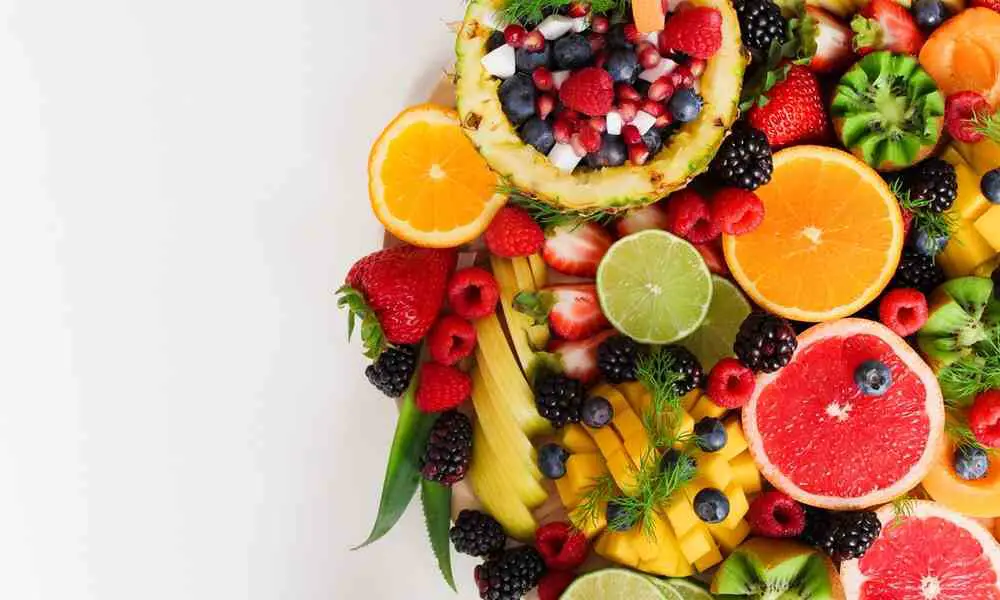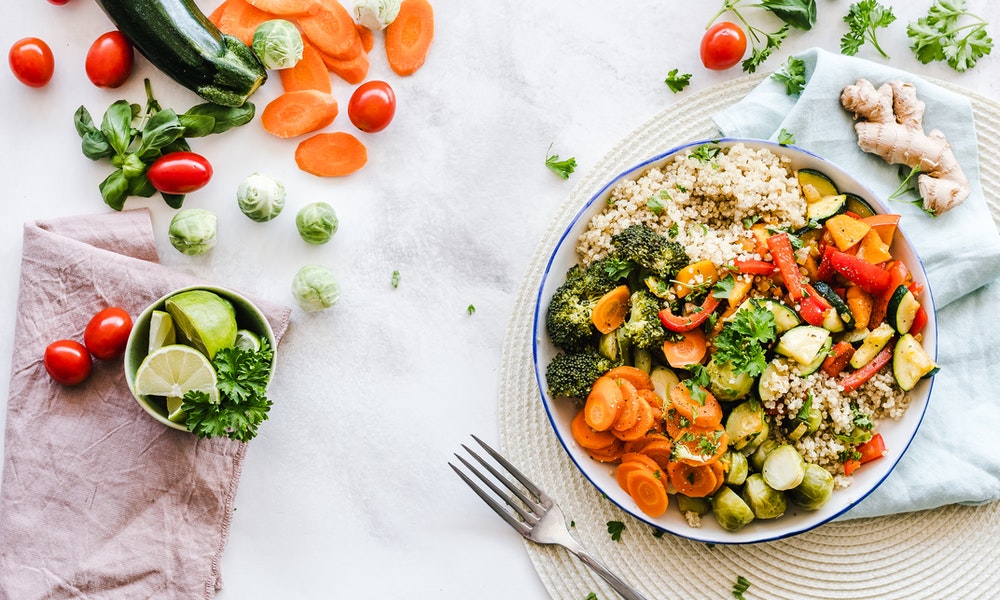
by Ameenah Gumbi | Nov 10, 2021 | Health & Wellness
Have you ever wondered what could be the best foods for asthma patients? Or how your diet can help you to reduce or control asthma symptoms? If you thought of that I am sure it crossed your mind that there could be the worst foods for asthma patients too. You are not alone in this train of thoughts. Researchers believe eating a healthy balanced diet can help reduce asthma symptoms. It is believed that foods that increase inflammation worsen asthma symptoms while those that reduce inflammation reduce the symptoms. Your weight can also affect your asthma condition, if you are obese you may not respond to asthma dose treatment.
Want to lose weight? Read this.
The best foods for asthma patients are fruits, beans, ginger, turmeric or foods rich in Vitamins A and Vitamin D, magnesium and beta carotene-rich vegetables. Here is why I said so;
Read: You Won’t Believe the Benefits of These Common Spices
6 Foods That Are Good for Asthmatic Patients
1. Fruits
Fruits reduce inflammation because they contain beta carotene and vitamin C and E. Eating 1 apple a day help to reduce total cholesterol, promote healthy cellular function and proper blood flow and also reduce asthma symptoms while improving lung function due to its antioxidant and potassium content.
Eating fruits, in general, helps in asthma control
2. Ginger and Turmeric
Ginger’s main bioactive compound is Gingerol an anti-inflammatory and antioxidant that can reduce oxidative stress and inhibit the growth of bacteria. Gingerol in ginger may also help relieve asthma symptoms due to its anti-inflammatory functions.
Turmeric is a natural anti-inflammatory compound that fights disease and helps in repairing damage in your body. It can increase the antioxidant capacity of the body by protecting your body from free radicals.it can also boost brain-derived neurotrophic factors, lower the risk of heart disease, prevent cancer and reduce asthma symptoms as it is a potent anti-inflammatory and antioxidant.
3. Foods Containing Vitamin D
Vitamin D is essential in maintaining healthy bones as it is important in regulating calcium and maintaining the phosphorus levels in your body. It also reduces the risk of flu and can make infants healthy by improving the arterial walls of children. Vitamin D enhances the anti-inflammatory effects of Glucocorticoids thereby reducing asthma symptoms.
Vitamin D also has numerous other benefits. Foods containing Vitamin D include; salmon, sardines, herring, red meat, liver. eggs etc.
4. Foods Containing Vitamin A and Beta Carotene
Vitamin A is important in preserving your eyesight, it can lower the risk of certain cancers as it aids in the growth and development of body cells. It also supports a healthy immune system by maintaining your body’s natural defences. Vitamin A reduces the risk of asthma symptoms as it improves lung function.
Read: These 12 Foods Are Good for the Eyes
Beta carotene is a pro-vitamin A carotenoid that gives vegetables their vibrant colour. Beta Carotene serves as an antioxidant that neutralizes free radicals in your body. Its importance is also found in the reduction of the body’s oxidative stress. Beta carotene helps the lungs work better and reduces the risk of cancer. Hence, reducing the risk of asthma attacks in patients.
5. Beans
Beans contain Amino acids that our body uses to heal or make new tissues. Moreover, beans have many health benefits as it serves as a source of protein. Because it contains folate that is essential in red blood cells formation. It also contains antioxidants that help in the removal of free radicals from the body thereby protecting the body from diseases.
Beans have fibre that can reduce the risk of heart disease. Lastly, it has anti-inflammatory agents which help in reducing the risk of cancer and also asthma symptoms which makes it one of the best foods for asthma patients.
Beans are also part of the foods that improve our metabolism
6. Magnesium Rich Foods
Magnesium helps convert food into energy, helps create new proteins from amino acids. It also helps create and repair DNA and RNA. It is important in muscle movements and in regulating neurotransmitters. Magnesium is known to fight depression, benefits against Type 2 diabetes. It can also lower blood pressure.
Conclusion
The best foods for asthma patients are foods that can increase your immunity, reduce inflammation, boost the overall health of your lungs or lung functions. As it will help you in reducing the number of Asthma attacks you will have as we have seen earlier.
It is important as an asthmatic patient you keep your body healthy, eat balanced foods and afford foods that can trigger your asthma symptoms. What are the bests or worst foods for you as an asthmatic person? Kindly leave your comments below or share with your loved ones let us know what foods that trigger your asthma symptoms.

by Maryam Saleh | Jun 6, 2021 | Health & Wellness
Eyes are the window to the soul. Without our vision, almost everything comes to a halt. Without the eyes, you won’t be able to read this today. Good eye health starts with the food on your plate. Many of the vitamins and antioxidants that improve eyesight naturally are found in common foods. On that note, I’ll be listing some of the foods that will help you improve your eyesight without you using glasses.
Foods That Will Help You Improve Eyesight Without the Use of Glasses
1. Fish
Fish are rich sources of omega-3 fatty acids. Oily fish have oil in their gut and body tissue. Therefore, eating them offers higher levels of omega-3-rich fish oil. Examples of fish that contain the most beneficial levels of omega-3s include tuna, salmon, mackerel, sardines e.t.c.
Fish oil like cod liver oil can reverse dry eye, especially dry eye caused by spending too much time on a computer. It also contains omega-3 fatty acids as well as vitamin A which makes them one of the best foods to improve your eyesight without the use of glasses.
2. Nuts
Nuts are also rich in omega-3 fatty acids and also contain a high level of vitamin E which improves eyesight without glasses. Vitamin E protects the eye from age-related damage.
Nuts are available almost everywhere. E.g. walnuts, almonds, cashew nuts, peanuts, hazelnuts, groundnuts e.t.c.
3. Seeds
Seeds are also high in omega-3s and rich sources of vitamin E which are foods to improve eyesight without glasses. This powerful antioxidant vitamin helps maintain healthy eyes because it decreases the risk of age-related degeneration and cataracts.
Examples include chia seeds, pumpkin seeds, melon seeds, sunflower seeds e.t.c.
4. Leafy Green Vegetables
Leafy green vegetables are rich in both lutein and zeaxanthin and also a good source of vitamin C. Lutein and zeaxanthin are antioxidants found in the pigments of leafy green vegetables and other brightly coloured foods. They protect the macula, the area of the eye that gives us our central, most detailed vision, and improves eyesight without glasses.
Well-known leafy greens include spinach, cabbage, waterleaf, lettuce, moringa, broccoli, peas.
5. Carrots
Carrots are rich in both Vitamin A and beta carotene; a component of a protein that helps the retina to absorb light and gives carrots their orange colour. Vitamin A plays an important role in vision perhaps the best-known eye-healthy nutrient. The retina needs plenty of vitamin A to help turn light rays into the images we see.
Therefore, without enough vitamin A, the eyes cannot stay moist enough to prevent dry eyes.
6. Sweet potatoes
Like carrots, sweet potatoes are also rich in beta carotene, a form of vitamin A that helps with night vision, the ability of the eyes to adjust to the darkness. They are also a good source of the antioxidant vitamin E.
One sweet potato also has more than half the vitamin C you need in a day and a little vitamin E.
7. Lean Meat and Poultry
Beef is rich in zinc which can help delay age-related sight loss. The eye itself contains high levels of zinc, particularly in the retina, and the vascular tissue surrounding the retina. Meats such as chicken breast also contain zinc, but at lower levels than beef.
Zinc brings vitamin A from your liver to your retina, where it’s used to make the protective pigment melanin and helps improve eyesight without glasses.
Oysters have more zinc than any other food. Beef, liver, and chicken (both dark and breast meat) are all good sources.
8. Eggs
Eggs are good sources of lutein and zeaxanthin, which reduce the risk of age-related vision loss. Eggs are also excellent sources of vitamins C and E, and zinc. The zinc in an egg will help the body use the lutein and zeaxanthin from its yolk.
The yellow-orange color of these compounds blocks harmful blue light from damaging your retina. This makes eggs one of the best foods to improve eyesight without glasses.
9. Water
It is not a surprise that a fluid essential to life is also vital to eye health. Drinking plenty of water can prevent dehydration, which may reduce the symptoms of dry eyes.
10. Beans (Legumes)
Zinc helps keep the retina healthy, protects the eyes from the damaging effects of light, and improves eyesight without glasses. However, zinc can lower the amount of copper in the body, which we need to help form red blood cells.
Fortunately, you can increase both at once with all kinds of beans (legumes), including black-eyed peas, kidney beans, lentils, and lima beans.
11. Fruits and Veggies Rich in Vitamin C
Vitamin C is important to the health of the eye. As an antioxidant, it helps protect the body from damage caused by some things we eat, unhealthy habits, and environmental factors. Vitamin C helps repair and grow new tissue cells. Excellent sources of vitamin C include; citrus fruits, such as oranges, tangerines, grapefruit, and lemons.
Lots of other foods offer vitamin C, including peaches, red bell peppers, tomatoes, and strawberries. Antioxidants can prevent cataracts and many other eye diseases.
12. Whole Grains
Grains contain vitamin E, niacin, and zinc, which provide a lot of benefits to the eyes. They also reduce the risk of cataracts, age-related degeneration of the eyes and one of the foods to improve eyesight without glasses.
However, the reduced likelihood of blood sugar levels could damage the retina with time and protect eye tissue from light and inflammation.
Conclusion
Lastly, the foods mentioned above are not only for the eyes but for the body too altogether. Maintaining a healthy lifestyle can help to lower the risk of eye problems. Don’t take your eyes for granted. Be healthy!
You should also check out these foods that help increase metabolism.


